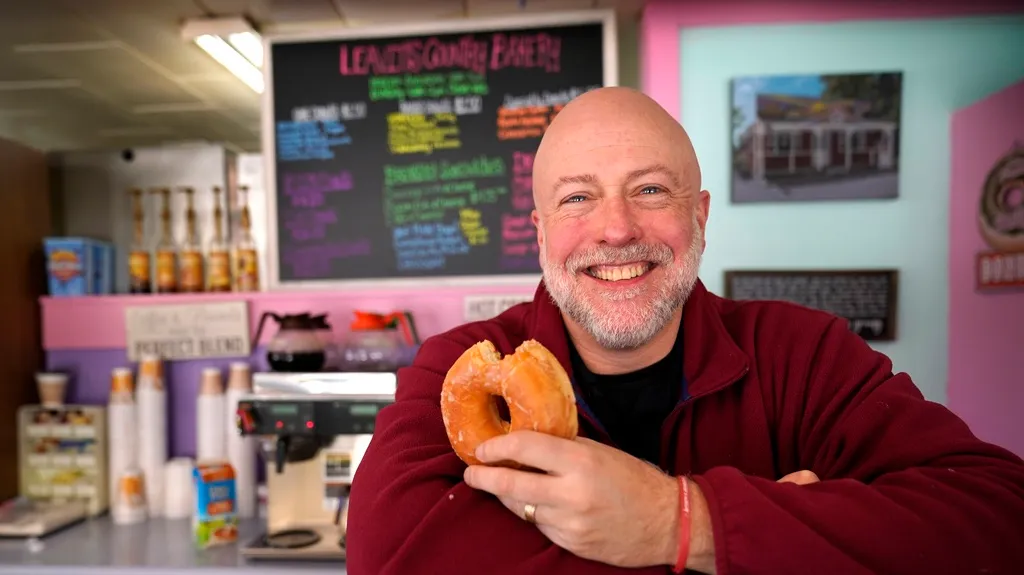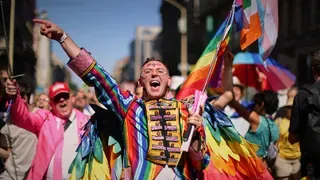April 9, 2013
GLSEN Mass. Conference Works to Teach Respect
Tony Hobday READ TIME: 5 MIN.
In 1988, the city of Cambridge lead the way to providing high school-based support for LGBTQ youth with the establishment of Project 10 East, an active gay-straight alliance initiative within the city's high schools.
"School leaders [in Cambridge] are engaged in nurturing safe and welcoming school climates that allow LGBT students to reach their potentials," Ed Byrne, the city's student diversity programs coordinator, told EDGE.
"We coach teachers on culturally competent instruction in our classrooms, and we're working to build a more inclusive curriculum that highlights not only the struggle of the LGBT community but also the resilience and accomplishments of LGBT individuals here in Cambridge and around the world," he said. "These approaches move beyond just punitive reactions to homophobia or bias-related bullying, they proactively educate, inspire empathy and promote mutual respect."
This commitment to prosperity for LGBTQ students in the state enticed the Gay, Lesbian and Straight Education Network (GLSEN), Massachusetts chapter, to hold its second annual conference at MIT in Cambridge on Mar. 30, drawing 340 students, educators, parents and advocates to a daylong block of 25 educational workshops.
To open the conference, a paragon of progress was given in the form of personal stories shared by two people whose differences growing up were only attributed to ignorance of their times.
David Wilson, 48, grew up black in segregated 1960s Boston. He lived most of his mature life following his mother's one rule for fitting in: "Keep your head down, live a cautious, predictable and risk-adverse life." Wilson, like many LGBTQ people growing up prior to the late '80s waited under a cloud of fear to come out later in life.
Zachary Kerr, a transitioning female-to-male high school senior, is the president of his school's GSA and has long been supported by his parents, siblings and peers. Kerr came out at age 14 and began transitioning two years ago.
Kerr quipped, "I remember walking into my band practice and there was a huge banner up that said: 'Congratulations Zachary David Kerr...It's a boy!' Well, so now everyone was wondering who is Zachary David Kerr, and why is he pregnant."
Conference Offers a Plethora of Workshops
The conference offered many workshops. In one, Family Equality Council's Senior Programs Associate Andra Oshinsky presented resources to help elementary schools be more welcoming of LGBTQ families. From the first steps to entering elementary to ongoing communications, the FEC has put into place several tools.
Their three-pronged plan include the Snap It and Send It! Initiative to empower individuals to change forms in their communities and to provide the tools and support for organizations that are revising their forms to be more inclusive. The Book Nook is an online resource for teachers and parents to find age-appropriate children's literature about families with LGBT parents. And Breakthrough Conversations present training sessions for community members with questions and concerns as schools become more visible about their inclusion of LGBT families.
"Family Equality Council connects, supports and represents the three million parents who are LGBT in this country and their six million children. Schools need to be intentional about welcoming these modern families," Oshinsky said.
Home-School Queer-Straight Alliance Presents Session
Several students from the Boston Area Homeschoolers Queer-Straight Alliance, a moniker deemed by the young group to be more inclusive, presented a session on the necessity of QSAs or GSAs in schools. The youth, ages 14 to 17, addressed institutions such as military, religious, private and middle schools lacking an alliance group.
Specific values of a GSA in these institutions discussed include strengthening sensibilities since the repeal of "Don't Ask, Don't Tell," providing spiritual guidance to LGBTQ students conflicted by their faiths, defying the status quo and identifying and familiarizing the diversity of LGBTQ families prior to entering high school.
School administrators that deny GSAs based on the position that their schools are already fully welcoming, or who believe GSAs only attract gay students, is "internalized homophobia" that needs to be addressed, according to 17-year-old Kendall, who said, "There are people who are outspokenly allies, and there are people who are outspokenly not allies and then there a lot of people in the middle."
MassEquality Community Organizer Andi Wheeler presented a workshop on the priming techniques for potential activists to pass LGBTQ legislation.
"The workshop centered on how individual stories and public narratives can be organized to address the interest behind a legislator's position," Wheeler told EDGE. "We discussed how to use lobbying tools of the trade to determine what is really holding a legislator back from supporting pro-equality legislation and then discussed district-by-district community organizing tactics."
With the efforts of mounting youth activists, cohesive grassroots organizations, constitutionally conscience politicians and openly expressive celebrities, the weathering on the LGBTQ children of Massachusetts, in their schools and communities, is statistically becoming milder -- yet an encompassing mood of the conference was "there is much work left to be done."
For more information about GLSEN Massachusetts, visit http://chapters.glsen.org/cgi-bin/iowa/massachusetts/home.html







